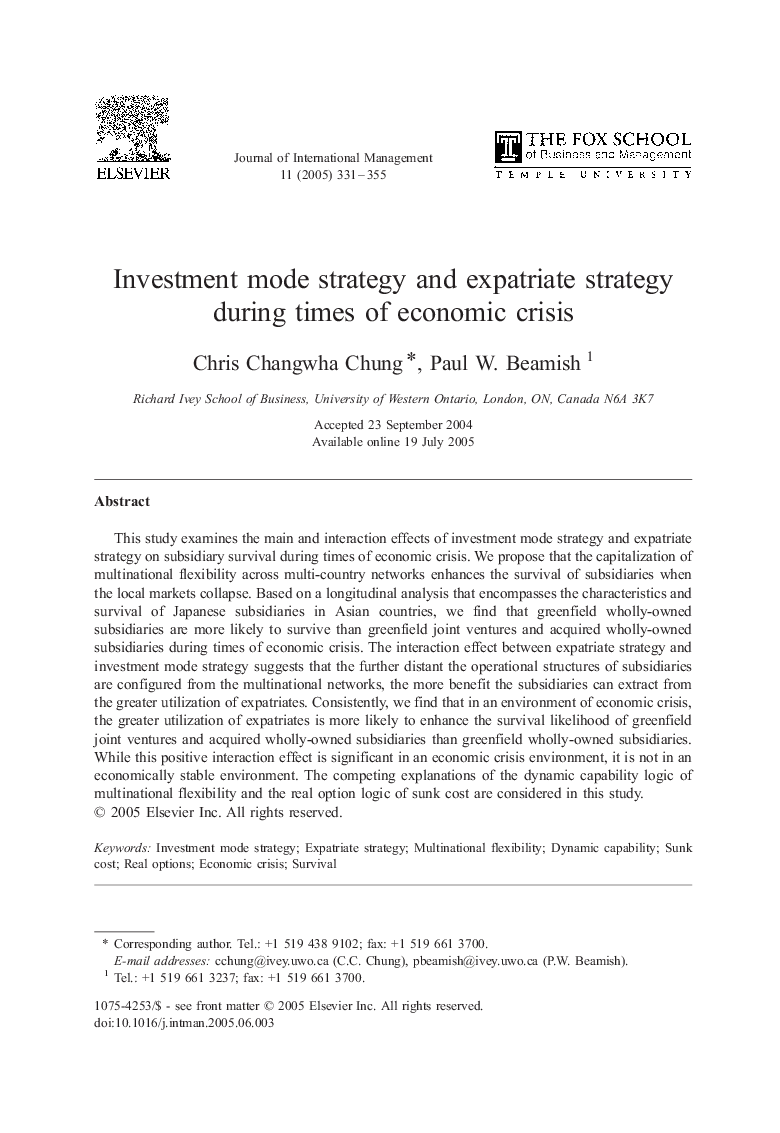| Article ID | Journal | Published Year | Pages | File Type |
|---|---|---|---|---|
| 10494199 | Journal of International Management | 2005 | 25 Pages |
Abstract
This study examines the main and interaction effects of investment mode strategy and expatriate strategy on subsidiary survival during times of economic crisis. We propose that the capitalization of multinational flexibility across multi-country networks enhances the survival of subsidiaries when the local markets collapse. Based on a longitudinal analysis that encompasses the characteristics and survival of Japanese subsidiaries in Asian countries, we find that greenfield wholly-owned subsidiaries are more likely to survive than greenfield joint ventures and acquired wholly-owned subsidiaries during times of economic crisis. The interaction effect between expatriate strategy and investment mode strategy suggests that the further distant the operational structures of subsidiaries are configured from the multinational networks, the more benefit the subsidiaries can extract from the greater utilization of expatriates. Consistently, we find that in an environment of economic crisis, the greater utilization of expatriates is more likely to enhance the survival likelihood of greenfield joint ventures and acquired wholly-owned subsidiaries than greenfield wholly-owned subsidiaries. While this positive interaction effect is significant in an economic crisis environment, it is not in an economically stable environment. The competing explanations of the dynamic capability logic of multinational flexibility and the real option logic of sunk cost are considered in this study.
Related Topics
Social Sciences and Humanities
Business, Management and Accounting
Business and International Management
Authors
Chris Changwha Chung, Paul W. Beamish,
